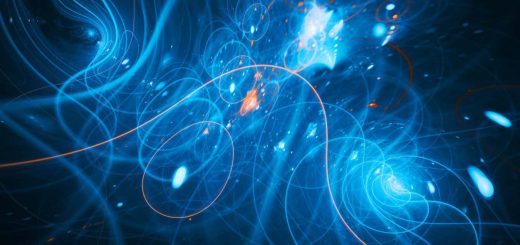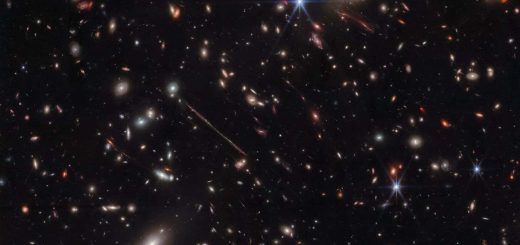Galaxy smash-ups may explain strange light from early universe
Light from hydrogen in the early universe has baffled astronomers, but researchers have spotted interacting galaxies that could explain how it makes its way to us
By Leah Crane
30 January 2024
Merging galaxies from the early universe imaged by the James Webb Space Telescope
S. Martin-Alvarez
Observations from the James Webb Space Telescope (JWST) have revealed dim galaxies smashing together, which could solve the mystery of previously unexplained glints of light from early in the history of the cosmos.
For a long period of the universe’s history ending about 1 billion years after the big bang, space was full of a pristine gas that should have blocked out the copious light emitted by hydrogen atoms. But researchers have seen twinkles of hydrogen shining from many galaxies in the early universe. This is a type of light known as Lyman-alpha emission.
Read more
Why the big bang may not have been the beginning of the universe
Advertisement
How this light escaped the shroud of gas has baffled astronomers, but Callum Witten at the University of Cambridge and his colleagues have found a potential solution. They examined JWST images of nine distant galaxies, all putting out Lyman-alpha emission, and found that every single one had at least one smaller galaxy right next to it. These secondary galaxies were too faint to be spotted with previous telescopes, and they all appear to be merging with their brighter partners.
Merging galaxies create bursts of star formation and light, including Lyman-alpha emission. They also generate powerful winds that could blow away the galaxies’ cosmic gas, allowing the light to escape. Those winds and the energy from the star formation could also strip the gas atoms of their electrons, which would otherwise allow it to absorb the light, rendering it transparent.
“We were aware there was a chance that we were missing fainter galaxies, but we weren’t aware that there would be so many so close to these brighter galaxies,” says Witten. “We weren’t aware that they were helping allow this emission to get out.”


